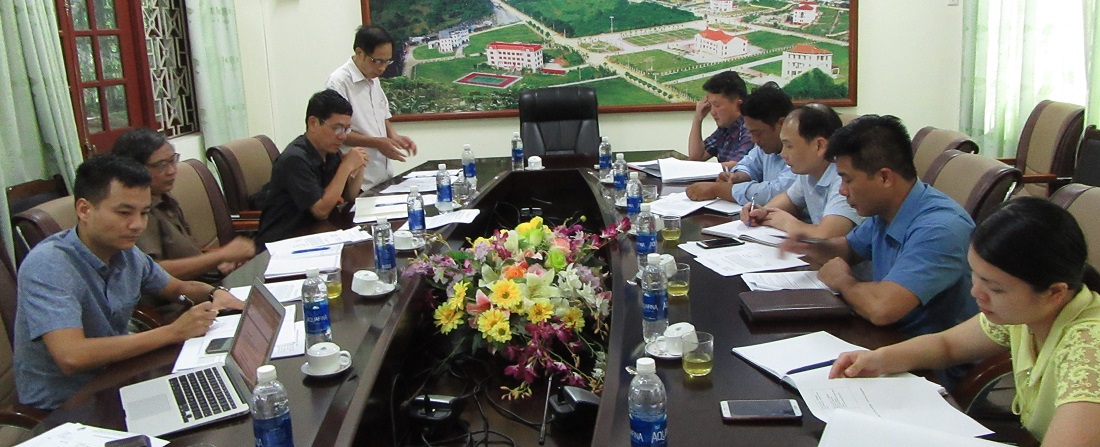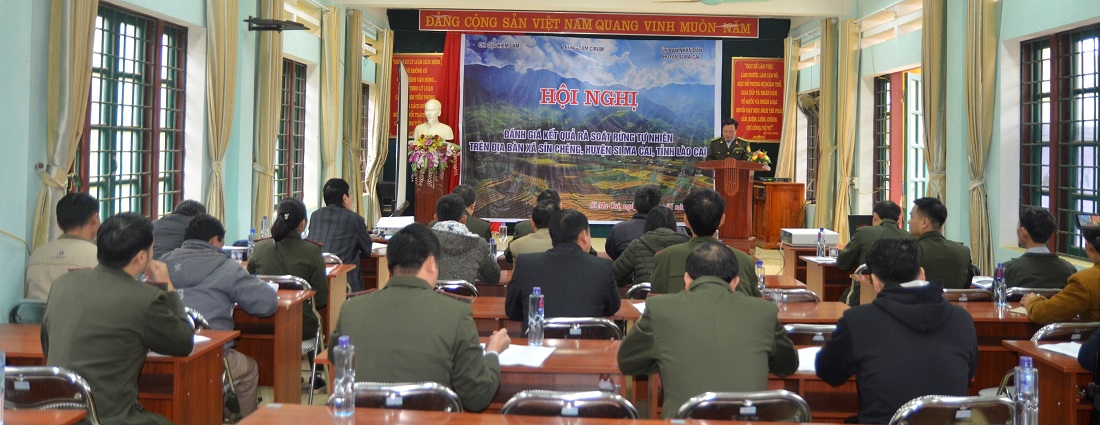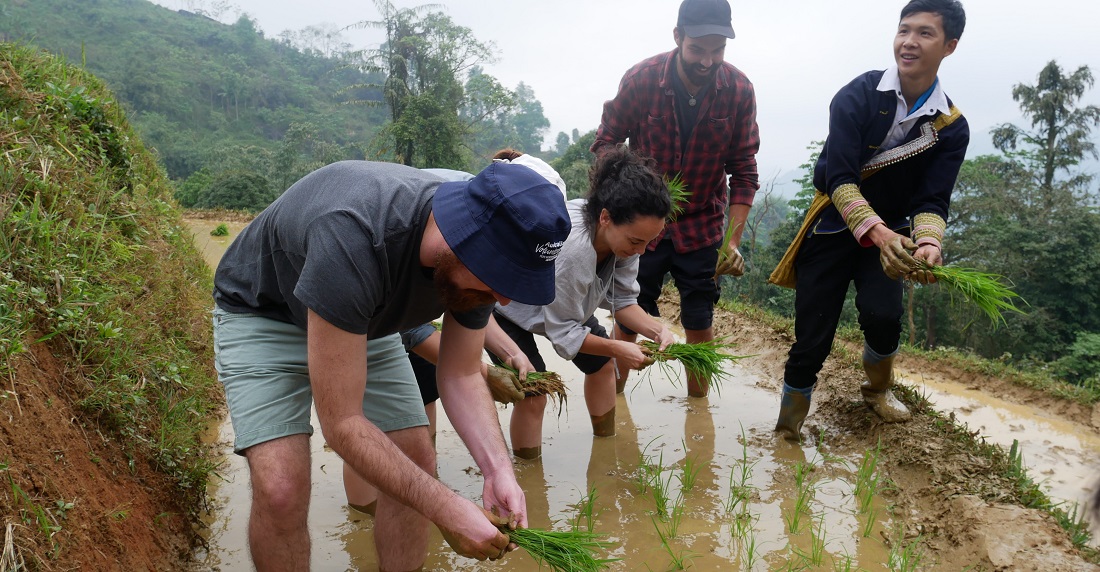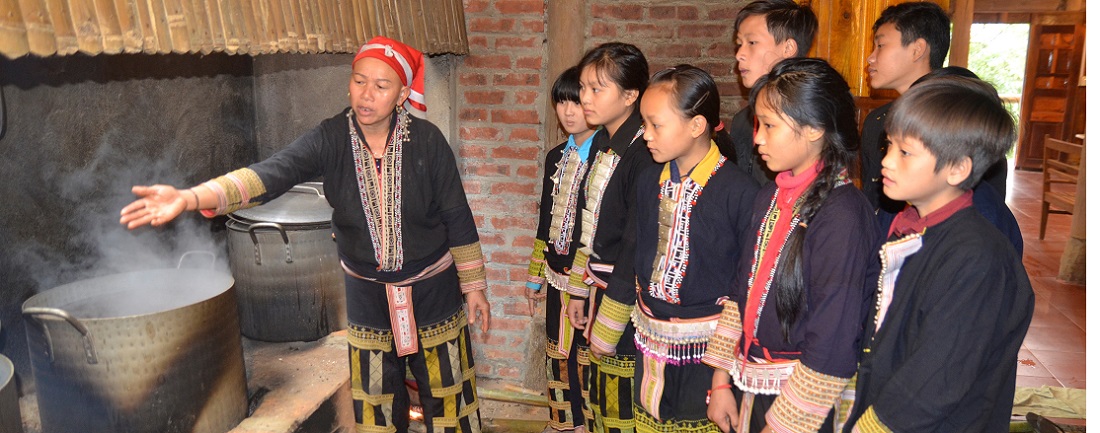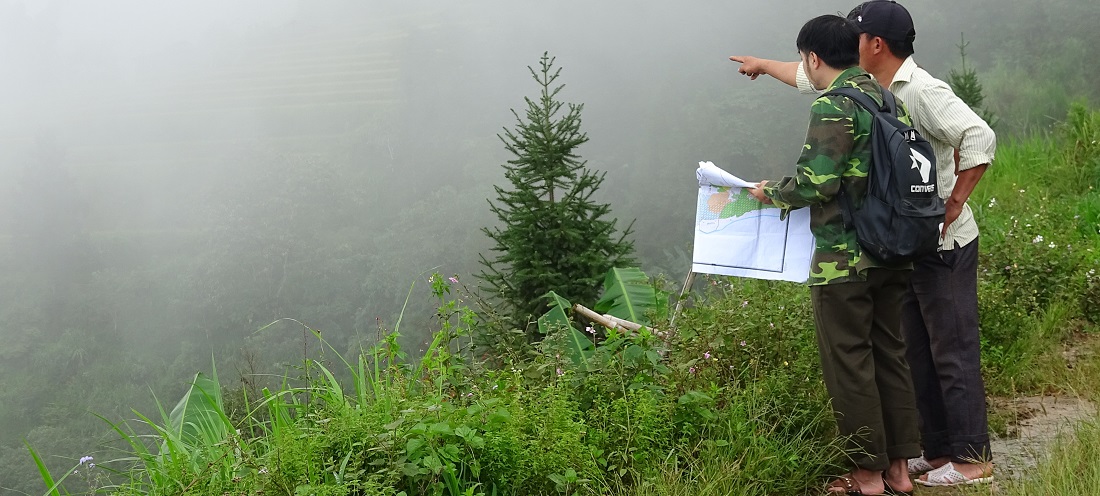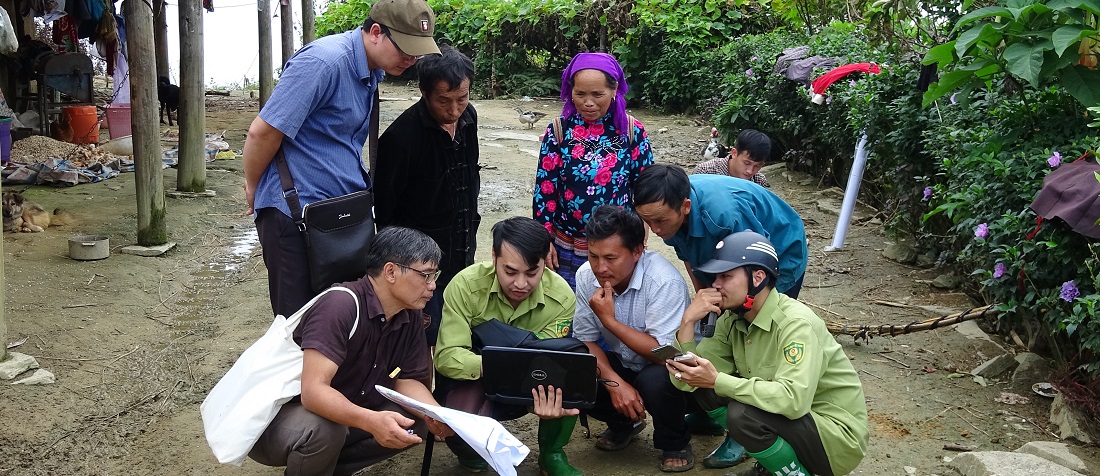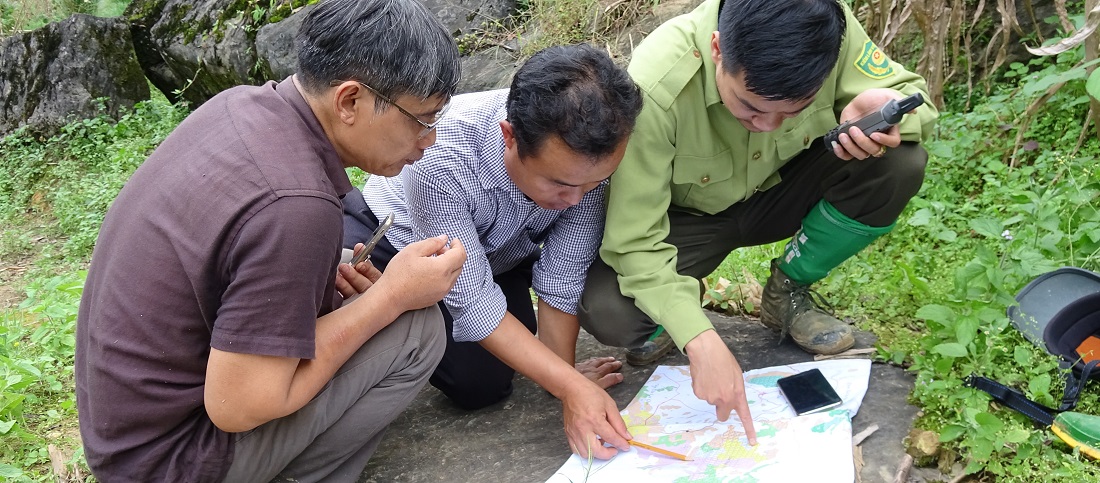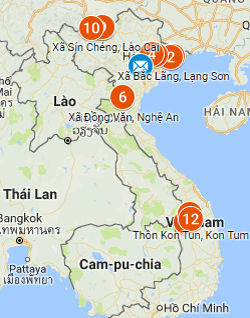LandNet members' meeting was colorfully covered by traditional costumes of ethnic minorities, such as the black suit of the Thai, or the red color of the Dzao. As usual, LandNet meeting is rather a family gathering. The meeting received the attendance of ethnic minority people from 9 provinces namely Lao Cai, Son La, Lang Son, Quang Ninh, Thanh Hoa, Nghe An, Ha Tinh, Quang Binh and Kon Tum. They led the talk, told their stories and shared their own experience in protection and management of community forests.
There has been no forest fire at my place
"Over 20 years working in forest management, there has been no forest fires at my place, because we shared the responsibility to protect the forest”, said Mr. Lo Van Tien, Forest Protection officer in Dong Van commune, Que Phong district, Nghe An province.
Mr. Lo Van Tien, Forest Protection officer in Dong Van commune, Que Phong district, Nghe An province
The new forestry law regarded the people as the owners of their traditional forests, having equal benefits as other forest owners (such as Protection Forest Management Board, Forestry Companies, etc.). The values of customary law in forest management and protection have also been recognized. The people now apply their customary law for forest management and protection.
Representatives are eager to share their stories
"Our people agreed to support and protect community forests. We are taking care of trees and growing crops under the canopy. The crops are actually native trees. We have covered 5 hectares and we will plant the entire area so that our forest will be covered in green color", Mr. Tran Vi Long, a representative of Son Linh Commune, Huong Son District, Ha Tinh province said excitedly.
Great news from livelihood models
In Sai Duan village, Phin Ngan commune, Bat Xat district, Lao Cai province, after a time growing Sa nhân tím (Amomum longiligulare) as a sustainable income model, the Red Dzao people have developed herbal medicinal bath service, using this plant and other native herbs. To date, the construction for the service has been completed; and herbal bath service is expected to be officially launched in January 2019. The people make all decisions, with helpful support from CIRUM.
Leading women from villages joined the meeting
A herbal medicine cooperative member affirmed: "We don't do with the modern style in the city but follow the tradition of the Red Dzao". In her traditional dress decorated with silver coins ringing with every step she made, Ms. Chao Coi May, healer and leader of the team, proudly introduced the model as "something to preserve the tradition of the Red Dzao", and at the same time "passing on to future generations". "Our model is a women-led startup", said May Ha, a very young member of the group.
Meanwhile, in Quang Binh, the Van Kieu women have been planting Đót (Thysanolaena latifolia), a native species used for making brooms beside their traditional crops. These trees are planted in May and harvested in December. The Van Kieu handled it very well using their indigenous knowledge. Children at the age of 12 also participate in picking the plants. As a result, they now have some money for food to survive in lean season, the period between the traditional harvests. The forest is kept safe and more trees are planted downstream. The initial area of 5 hectares have now doubled, and even multiplied in neighbor regions.
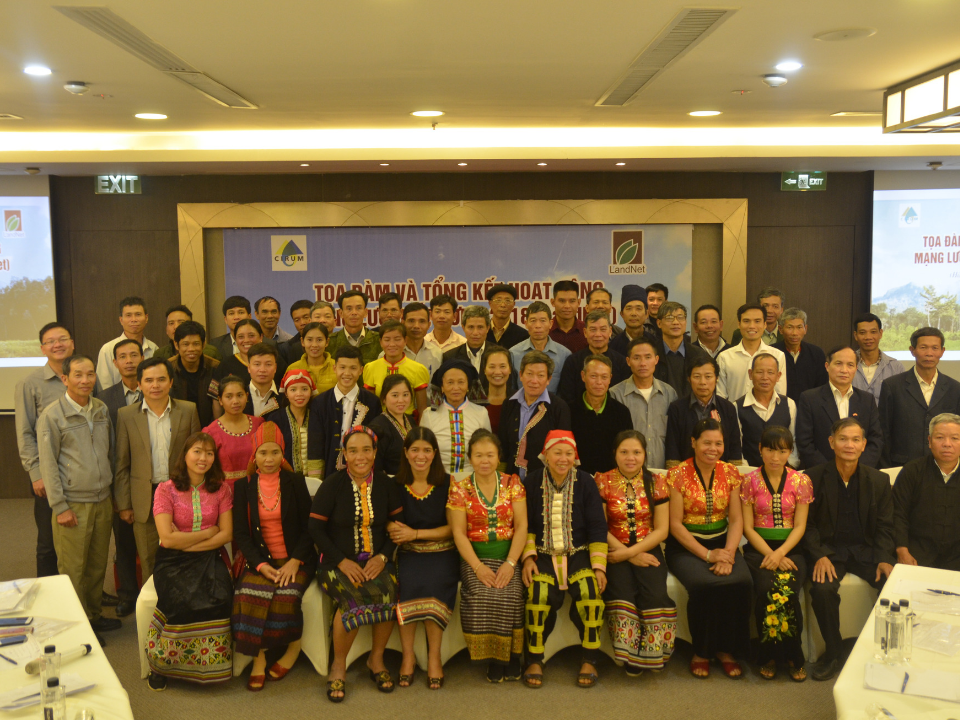
Representatives from Lang Son province shared their sustainable income model with forest protection in Dinh Lap district. It is indigenous forest trees planted under the canopy.
In the allocated land of Nghe An Province and Ha Tinh province, in the allocated land, the community has been growing native plants to restore the forests.
In Tu Mo Rong commune, Tu Mo Rong district of Kon Tum province, Ngoc Linh ginseng is a precious asset that the community thrives to grow and protect in their forest and hope that in the upcoming years, harvests will be fruitful.
The year 2018 has passed and much has been done. It is expected that in the coming year, when the forest law officially takes effect, ethnic minority people can really promote the ownership of forest land and the livelihood models will develop.
(1).png) Mr. Lo Van Tien, Forest Protection officer in Dong Van commune, Que Phong district, Nghe An province
Mr. Lo Van Tien, Forest Protection officer in Dong Van commune, Que Phong district, Nghe An province(1).png) Representatives are eager to share their stories
Representatives are eager to share their stories.png) Leading women from villages joined the meeting
Leading women from villages joined the meeting






